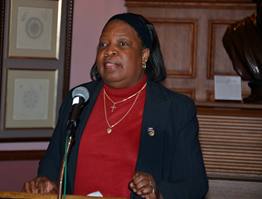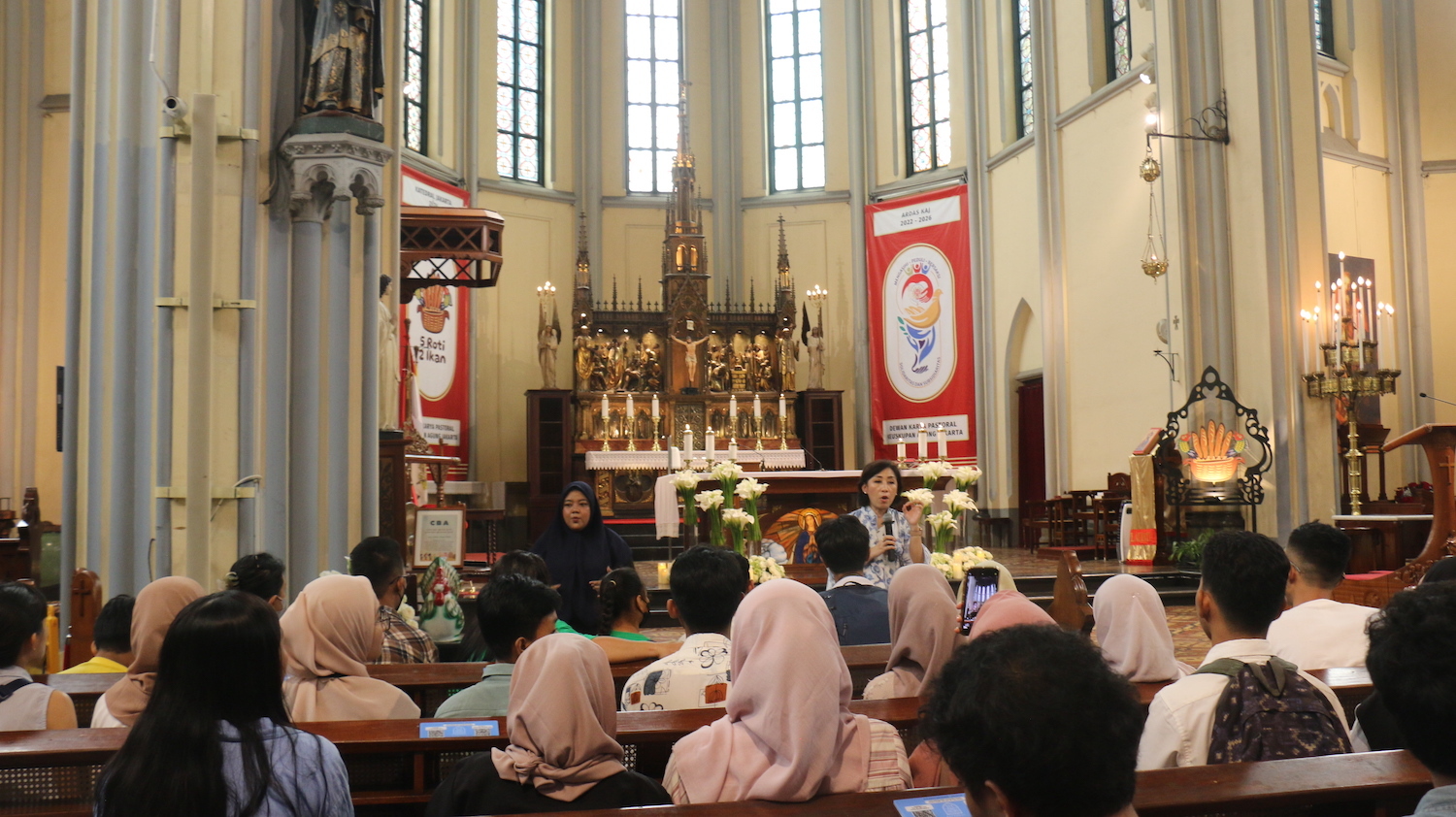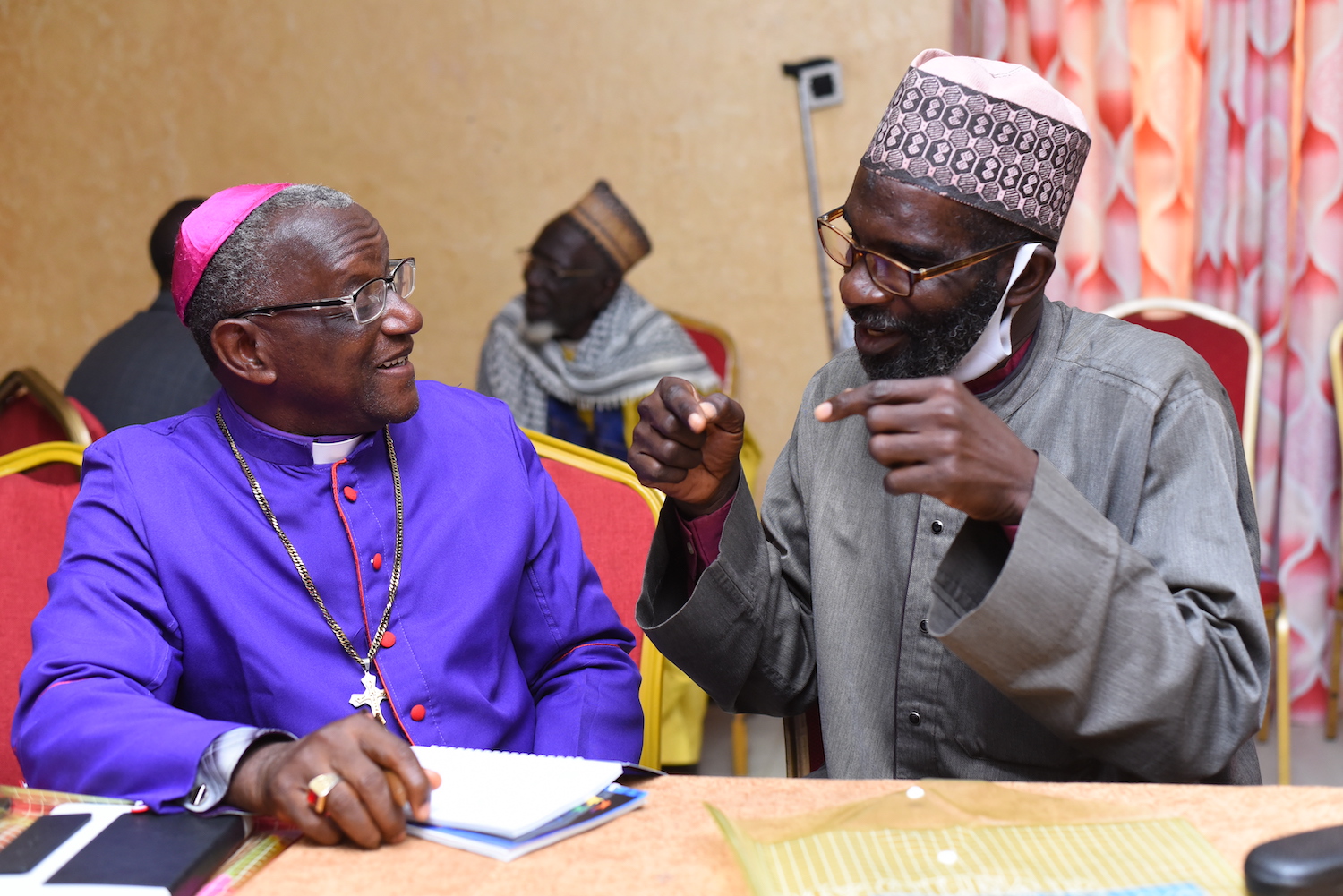
Dr. Jacquelyn Henry, Executive Director of the Healthy Families Thriving Communities Collaborative Council, addresses an overflow audience at Charles Sumner School in Washington.
“The absence of fathers in the lives of their children is a national epidemic and a major contributor to the inability of families, neighborhoods and communities to thrive economically,” declared Dr. Jacquelyn Henry, Executive Director of the Healthy Families Thriving Communities Collaborative Council, at a Fatherhood and Family Engagement Symposium in Washington, DC on October 4. “Men with limited education, few job skills, and other barriers to employment are not a match to the employment opportunities of the twenty-first century.”
Some 120 energized participants from the Greater Washington region attended the Symposium at the Charles Sumner School. Sponsored by the Office of the State Superintendent of Education, the D.C. Head Start State Collaboration Office and the Strengthening Families and Communities Coalition-DC(SFCC-DC), the Symposium educated participants on fatherhood and parenting initiatives and on the role of the public sector in funding and other assistance. SFCC-DC is co-convened by GPF-USA, the Administration for Children and Families and the Greater Washington Urban League.
Dr. Henry said the Collaborative Council’s FEED (Father Education, Empowerment and Development) program, supported by a $4.6 million government grant, has made a significant impact. “What we have learned is that there are many fathers who truly want to be more fully involved in the lives of their children. They want to become better fathers. We have countless examples of men whose lives have been transformed by their participation in our program.”
The Symposium also highlighted the support role of human services to parents as primary care givers in a panel presentation, “It Takes a Village: Co-Laborers in the Promotion of Child and Family Welbeing.” An afternoon panel, “Crisis in the Village: Awareness and Response,” examined financial literacy, the role of marriage in family health and prosperity, and the growing threat of human trafficking to vulnerable youth.
‘Collective impact’
In her keynote address, Ms. Diann Dawson, Director of Regional Operations of the Administration for Children and Families of the U.S. Department of Human Services, emphasized that “a collective impact occurs when people from different sectors—such as government, nonprofits, for-profits, school districts, and human services agencies— commit to a common agenda for solving a specific social or environmental problem.”
Citing the Stanford Social Innovation Review, she noted five key conditions that distinguish collective impact from other types of collaborations:
- Common Agenda, a shared understanding of the problem and a joint approach to solving it;
- Shared Measurement, collecting data and measuring results consistently across all participating agencies;
- Mutually Reinforcing Activities, differentiating activities while also coordinating through a mutually reinforcing plan of action;
- Continuous Communication, consistent and open communication to build trust, assure mutual objectives, and create common motivation; and
- Backbone Support, organizational staff and specific skill sets.
GPF-USA Special Projects Director Ms. Gail Paine presented sobering findings on the growth of human trafficking in the United States and the need for concerted efforts, particularly among the faith community, to recognize the danger signs and raise public awareness. “Faith communities who become ‘Safe Havens’ will prominently display the Safe Haven logo,” she said. “It is our hope that the logo can become known to victims as the symbol of a refuge where they can be safe. Through the Safe Haven Campaign, members of faith communities learn how to identify and communicate with victims, and when to call the hotline number.”
The conference closed with an address by Mr. Ben O’Dell, Associate Director for the Center for Faith-based and Neighborhood Partnership. After appreciating the efforts of the organizers of this year’s symposium, Mr. O’Dell described the Obama administration’s significant contributions in the promotion of responsible fatherhood and how key leaders are working across the country to implement the Initiative.
In closing remarks, Strengthening Families and Communities Coalition Director Alan Inman announced the January 17 “Family Empowerment Conference” to be held at George Washington University in Washington.

From left: Mr. Frank Malone, President of 100 Fathers; Ms. Mia Bailey, HHS Administration for Children and Families; and Ms.Marjorie Young-Grays, Executive Director of Family Matters Empowerment Center.



